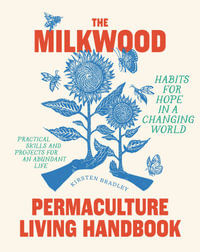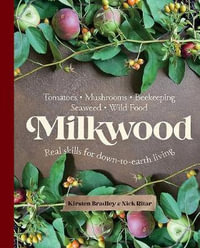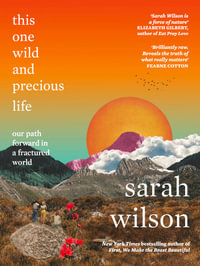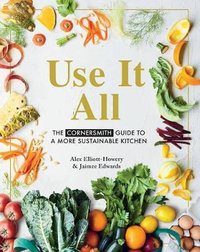
Down to Earth
A Guide to Simple Living
By: Rhonda Hetzel
Hardcover | 1 February 2012 | Edition Number 1
Sorry, we are not able to source the book you are looking for right now.
We did a search for other books with a similar title, however there were no matches. You can try selecting from a similar category, click on the author's name, or use the search box above to find your book.
Rhonda Hetzel gently encourages readers to find the pleasure and meaning in a simpler life, sharing all the practical information she has gathered on her own journey. Whether you want to learn how to grow tomatoes, bake bread, make your own soap and preserve fruit, or just be inspired to slow down and live more sustainably, Down to Earth will be your guide.
About the Author
Rhonda Hetzel is a retired journalist and technical writer best known for her award-winning blog, 'Down to Earth'. Rhonda lives with her husband, Hanno, on the Sunshine Coast, where they happily tend a food garden, gather eggs and occasionally look after grandchildren. Rhonda is a keen volunteer worker and is often found presenting simple-living workshops in her community.
After many years working as a journalist and technical writer I was burnt out. I'd just finished a major contract for a big company when I realised I didn't want to work for a living any more. I wanted to stay at home and rebuild my spirit. I wanted to look after my family, slow down, collect eggs and honey, and sit and dream in my garden. I also wanted to feel more alive.
What I had been doing was working in a job I didn't like so I had enough money to pay for a lifestyle I didn't want. I was shopping for clothes and shoes to make me look like everyone else. I was buying things for my home to make me feel comfortable in a place I didn't take the time to feel comfortable in. And I was buying food to comfort and nurture because I didn't feel at ease in my life and I didn't have the time or energy to cook the food I liked. This destructive behaviour seemed to be quite acceptable and, from what I could see, my family and friends were doing a similar thing. Continuous consumption was even encouraged by our government, who told us that shopping was good for the country and we were 'growing the economy'. And the strangest thing is that when I was living in this way, I didn't think about the sadness I was feeling. I didn't realise I was unsatisfied and I didn't see the need for change. I believed I was the queen of my realm, that the more I had and the more dollars I spent, the more power, strength and independence I had. When I stopped spending I realised how pathetically wrong that was. I had actually been giving away my independence.
Now that I look back on it, I must have been a bit crazy to believe that I could just stop shopping without changing the way I lived too. I thought I would just stop the mindless spending while finding satisfaction within my own home, and that would be that. I didn't know then that the charm of living without shopping, and of making do with what I had, would open up a whole new world for me, where independence and opportunity would live side by side and lead to a kind of gentle liberation.
Luckily, at that point, I discovered that others had walked this road less travelled before me. I found a group of writers who had been explaining their philosophy to the world for many years, so I started reading. I found Walden by Henry David Thoreau online and devoured it within hours. I ordered books from America that were not yet available in Australia – The Simple Living Guide by Janet Luhrs, Your Money or Your Life by Joe Dominguez and Vicki Robin, the Encyclopedia of Country Living by Carla Emery, and The Complete Tightwad Gazette by Amy Dacyczyn.
I also discovered blogs. Here was a world I had never known about, where real people were writing about things that interested me. I could see into their lives, get to know their families, understand how they lived and be part of a community that supported one another. Once I found blogs, it didn't matter much that I didn't personally know anyone who was doing what I was doing; I felt comfortable in the company I kept online. In those early days I didn't find many people blogging about living my dream life, but I really enjoyed the blogs about family and frugal living. I also found blogs about global warming, lightening your footprint, going green and peak oil, but none that wrote about what I wanted to do – change how we live in the most fundamental and practical way.
I started my own blog and called it 'Down to Earth'. Instead of adding my voice to the fast-growing group of people who were writing about environmental disaster and post-peak survival, I decided I would write about our ordinary daily lives and how we were simplifying, and let that be my manifesto. I believed where radical change was needed was in the business of day-to-day living which, if done mindfully, could hopefully lead us to a good life. I hoped that writing the blog every day would make me accountable and give us a clear record of what we were doing.
I realised that many of the things I spent my money on I could do or make myself: I could make clothes, I could cook, I could do my own housework. But once I started doing those things I found that I'd lost many of those skills. I'd forgotten how to sew and knit because I'd been paying someone else to make my clothes. I'd forgotten how to cook from scratch because I'd been buying food that didn't require me to exercise my mind or spend my energy on making my favourite dishes. When it came to housework, all I knew was to get products from the cupboard and start wiping. I was a grown woman and I didn't know how to look after my family or myself properly. I'd forgotten the skills that had been passed on to me and I was almost completely dependent on others to help me live.
You don't have to be a genius to shop; all you need is money, or a credit card, and some time. Not shopping, on the other hand, requires a multifaceted strategy. You need to know how to create, cook, clean and sew; you need to make do with what you have, to reuse, recycle and repair. You need to barter, grow, store and preserve – and it helps if you like doing it. You have to discover for yourself the true beauty of being able to look after yourself, your family and your home with a minimum of outside help. The beauty is there if you look.
We live on a limited budget but I am richer now than I've ever been in my life. I know how to live. I have the skills to survive a crisis. I have the strength and knowledge to produce my own food and to store it. I can clothe myself and others. These are life-engaging and self-empowering skills. But the real skill here is to do it and love doing it day after day. Relearning those lost skills, and then using them, are acts of subversion because you're not doing what women and men in our times are supposed to be doing. Nurturing your family and yourself with cooking, gardening, repairing, dressmaking, knitting, creating, recycling and all the other things you learn to do in your post-consumerist life not only enriches your spirit, but also makes you an independent force. May the force be with you.
ISBN: 9780670075928
ISBN-10: 0670075922
Published: 1st February 2012
Format: Hardcover
Language: English
Number of Pages: 336
Audience: General Adult
Publisher: Penguin Australia Pty Ltd
Country of Publication: AU
Edition Number: 1
Dimensions (cm): 24.13 x 18.42 x 2.54
Weight (kg): 1.04
Shipping
| Standard Shipping | Express Shipping | |
|---|---|---|
| Metro postcodes: | $9.99 | $14.95 |
| Regional postcodes: | $9.99 | $14.95 |
| Rural postcodes: | $9.99 | $14.95 |
Orders over $79.00 qualify for free shipping.
How to return your order
At Booktopia, we offer hassle-free returns in accordance with our returns policy. If you wish to return an item, please get in touch with Booktopia Customer Care.
Additional postage charges may be applicable.
Defective items
If there is a problem with any of the items received for your order then the Booktopia Customer Care team is ready to assist you.
For more info please visit our Help Centre.
























